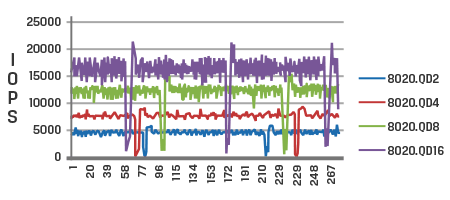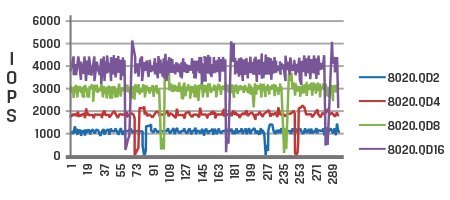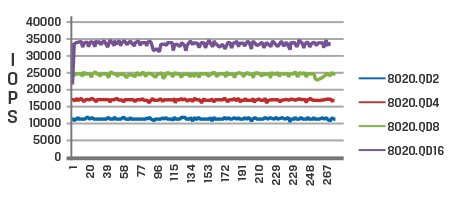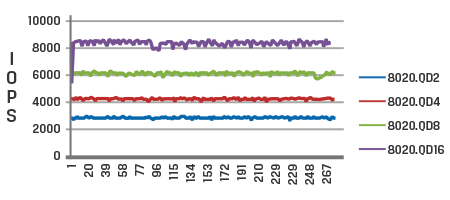Datacenter SSDs (solid-state drives) are specifically designed for data centers and enterprise applications, while client SSDs are designed for consumer applications.
Here are 5 reasons why you should use data center SSDs instead of client SSDs in a server:
1. Greater Endurance:
Datacenter SSDs are designed to handle a greater volume of read/write operations over their lifetime than client SSDs.
This means they can withstand the demands of data center environments where the workload is intense and access to data is constantly in demand.
2. Increased Reliability:
Data center SSDs are built with more robust components and have a longer lifespan than client SSDs.
They are designed for 24/7 operation and have additional features such as power outage protection and data path protection, which help prevent data loss.
3. Performance improvement:
SSDs designed for data centers are very performant in those settings. They deliver predictable low latency (also known as quality of service) and IOPS uniformity while ensuring an intense read/write workload.
Because of this, they are better suited for applications that need high-speed data access since they can manage more I/O operations per second.
I/O performance uniformity between client SSD and data center SSD (QoS)
Client SSD – 4K 80R/20W Random Read IOPS – QD2-QD16

Time in seconds
Client SSD – 4K 80R/20W Random Write IOPS – QD2-QD16

Time in seconds
Data Center SSD – 4K 80R/20W Random Read IOPS – QD2-QD16

Time in seconds
Data Center SSD – 4K 80R/20W Random Write IOPS – QD2-QD16

Time in seconds
According to the identical workloads, the graphs compare the performance of a client SSD (top) with a data center SSD (bottom).
The client SSD graph exhibits large fluctuations in IOPS (input/output operations per second) with a high coefficient of variation, especially under demanding workloads.
This fluctuation is undesirable for data center customers because it leads to inconsistent performance, which results in slow response times when reading or writing data.
As opposed to the client SSD, the data center SSD graph exhibits higher and more stable IOPS.It exhibits a lower coefficient of variation, indicating rapid and reliable performance. response times under different workloads.
Consistent IOPS and predictable low latency, also known as Quality of Service (QoS), are critical factors considered for SSDs for data centers.
4. Advanced Features:
Data center SSDs have advanced features such as end-to-end data protection, which ensures that data is protected at every stage of the data transfer process.
They also have features such as hardware encryption and secure erase, which help protect sensitive data.
5. Testing and compatibility:
Data center SSDs are tested on server platforms with third-party and OEM RAID controllers to ensure compatibility with this hardware.
Overall, using data center SSDs rather than client SSDs in a server can provide significant benefits in terms of endurance, reliability, performance, advanced features, and support.
While client SSDs may be suitable for consumer applications, they are not designed to meet the demands of a data center environment.
You can find more information about our Kingston data center SSDs on our ‘solutions’ page or you can use the Ask an Expert service to help you choose the right SSD for your applications and workloads.


